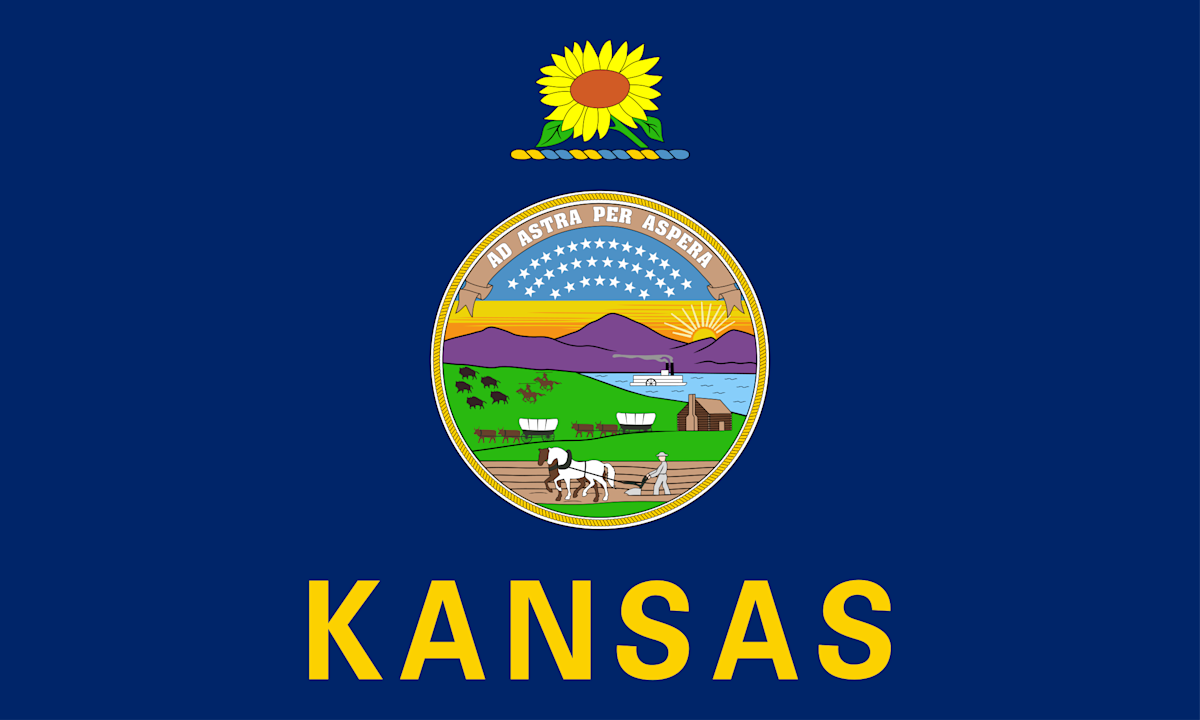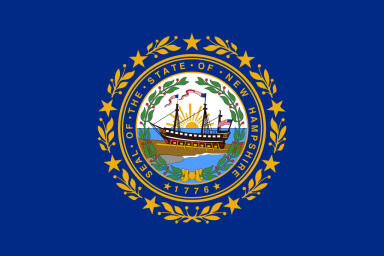Kansas Workers’ Compensation Laws

In 2021, employers in Kansas in the private sector reported a total of 24,700 nonfatal illnesses and injuries. These numbers resulted in an incident rate of 2.7 cases per 100 full-time equivalent workers.
In the same year, the state and local government sectors had an incident rate of 3.9 cases per 100 full-time workers. This rate resulted from the 6,300 reported cases of work-related injuries and illnesses. On a national level, this rate stood at 4.5.
In the aftermath of a workplace accident, dealing with medical bills, lost wages, and the pressure to return to work can be overwhelming.
Workers’ compensation aims to alleviate these stresses. It covers workers for injuries, illnesses, or fatalities from on-the-job accidents. If you’re injured on the job, Kansas workers’ comp laws ensure you receive the support and protection you deserve.
Kansas Workers’ Compensation Insurance Requirements
All employers must obtain insurance for their workers per Kansas workers’ comp laws, except those in the agricultural sector and businesses with employees with a gross annual pay of $20,000 and below. Workers’ comp insurance covers full- and part-time employees, leased workers, and their dependents.
Workers’ Comp Exemptions
Kansas workers’ compensation insurance is not required for the following:
Realtors operating as independent contractors.
LLCs, partnerships, and sole proprietorships.
Drivers of owner-operated vehicles with individual occupational accident insurance policies.
Members of firefighters’ relief associations that opted out of workers comp coverage.
Some can choose to participate in the Workers’ Compensation Act. This option is available to the following types of workers and entities, depending on certain circumstances:
Employees of corporations who own at least 10% of company shares.
Trustees, officers, and volunteer directors within a nonprofit organization.
Individual business owners, partnerships, and sole proprietors.
Employers not covered by the act, specific agricultural pursuits, and those with an annual payroll of $20,000 and below.
Employers seeking to insure non-covered and volunteer workers.
Sources for Workers’ Comp Insurance
Employers can obtain workers’ compensation insurance through one of the following sources:
Insurance carriers licensed by the Kansas Insurance Department.
Group-funded pools regulated by the Kansas Insurance Department.
Self-insurance programs by the Division of Workers’ Compensation.
Unlike in the four monopolistic states (Ohio, Wyoming, Washington, and North Dakota), where employers must purchase a separate employer’s liability insurance, Kansas employers have this coverage as Part 2 of their workers’ comp policies. Employer’s liability insurance covers the potential expenses a business may face after being sued for a work-related injury or illness.
Special Rules
Kansas has specific rules regarding workers’ compensation laws. Here are some key points to keep in mind.
Permanent disability compensation must be dispensed weekly until paid in full unless a mutual agreement is reached for a lump sum payment to close the case. The settlement must be in the employee’s best interest and submitted to the Workers’ Compensation Court to be enforceable.
If an employee’s injury or death results from drug or alcohol impairment, including over-the-counter or prescribed medicines, the employer will not be held responsible.
Exceptions are applicable when the medications are consumed in therapeutic quantities and the employee hasn’t previously shown any impairment from doing so in the past two years.
Insurance companies and group-funded plans must offer accident prevention programs to their policyholders upon request. Every policy issued after July 1993 must include a notice of such accident prevention programs on the first page.
Non-compliance Penalties
Employers with an annual payroll surpassing $20,000 must provide workers’ compensation insurance. Violating this rule results in a civil penalty of double the annual premium or $25,000, whichever is greater.
Kansas Workers’ Compensation Benefits
Kansas workers’ comp laws, specifically K.S.A. 44, Articles 5 and 5a, outline the benefits entitled to injured employees, including medical benefits and wage loss payments.
Categories of Wage Loss Benefits
How to File a Workers’ Compensation Claim in Kansas
Following an accident at work, the affected employee and employer bear key responsibilities. Dealing with such occurrences can be daunting, with the best resolution requiring the cooperation and understanding of both parties.
The subsequent guidelines detail the steps and actions each should take to successfully navigate the workers’ compensation claims process.
When is the Deadline for Workers’ Compensation Claims in Kansas?
According to state law, it is necessary for employees to provide timely notification of their injuries to their employers. The claim can be rejected if they don’t notify their employers by the earliest of these dates:
Injuries, whether resulting from a single event or repetitive trauma, must be reported to the employer within 20 days of their onset.
Workers who are still under the employer’s purview and seeking medical treatment need to report within 20 days of the initial consultation.
Employers no longer affiliated with the company have a notification deadline of 10 days following the last day of employment.
A Step-By-Step Guide on Filing a Workers’ Compensation Claim in Kansas
1. Employee Reports the Injury
Following a workplace accident, the affected worker must report their injury to their employer through oral or written notice. If the employer has designated a specific individual or department in writing to receive notices, then oral notifications to any person or department will not be considered.
If the employer hasn’t specified a person or group to whom notice must be provided, notification must be given to a manager or supervisor. When an employee gives notice about an injury in writing, it should be handed directly to a manager or supervisor at the main work site.
2. Employee Seeks Medical Treatment
After a workplace accident, it’s vital for workers to be attentive to directives from management to seek immediate medical attention. Any instructions and advice from the treating physician should be strictly followed.
After obtaining the necessary medical care, the employee must undergo any physical examination requested by the employer. The employer can ask for regular assessments, up to twice a month, or even more if the Division of Workers’ Compensation says so.
3. Employer Notifies the Insurance Company
Unless self insured, the employer notifies the insurer about the employee’s injury. All insurance companies, self-insurers, and group pools must file the First Reports of Injury and Subsequent Reports of Injury using the Electronic Data Interchange and the Release 3 Standards.
4. Employer Sends Information to the Employee
The employer must provide the employee and their dependents with information on the claims process, a list of the available benefits, and the company’s or insurer’s contact details for workers’ compensation.
This step requires K-WC 27 or K-WC 270 forms, which can be sourced from the insurance company or the Division of Workers’ Compensation.
5. Employer Files the Claim
Employers have 28 days to notify the Division of Workers' Compensation about the injury. Those who fail to file an accident report within the allotted time frame risk facing legal and financial repercussions.
After receiving the accident report from the employer and insurer, the Division responds by sending a written claim form to the employee. The worker then submits this form to the employer.
6. Insurer Reimburses the Employee for Benefits
The employer’s insurance handles workers’ compensation benefits, whether through direct or self-insurance. The coverage includes medical benefits, indemnity payments if the worker is unable to work, and additional benefits if the injury becomes permanent.
Employers have the discretion to choose the treating doctor and are committed to providing all necessary medical care for the worker.
However, if the worker opts for a doctor outside the employer’s approved list, the company’s insurer will shoulder only the first $500 in medical expenses.
7. Employee Disputes the Denied Claim
If the employee and employer don’t see eye to eye on medical or temporary disability benefits, the employee can request an initial review. An administrative law judge is assigned to the case to conduct a preliminary hearing.
The judge listens to the facts, evaluates the evidence, and decides. Any party to the workers’ compensation claim may request a mediation hearing at any point during the procedure, and it will be scheduled after the other party agrees.
What Should One Do If a Workers’ Compensation Claim in Kansas Has Been Denied?
If your workers’ compensation claim in Kansas is denied, you have the right to appeal the decision. You should start by submitting a request for review to the Appeals Board (kindly refer to pages 45-46 of the OSCAR Training Manual).
This should be done as soon as possible — you only have 10 days from when the initial decision was made to submit a request.
You must provide the case number, your name, and the name of the respondent and their insurance company in the review request. If there are multiple defendants or insurance agencies, you must include their respective legal representatives.
The administrative law judge’s name, the order date, and the specific issues being raised for reconsideration must be included in the request’s main body.
The Board establishes a timeframe for all parties to submit written briefs. Typically, the employee appealing the decision has 30 days to file a brief, after which the other party has 20 days to respond.
Additionally, the Board determines whether the case should be discussed verbally after reviewing all briefs.
They will continue without a hearing if they believe everything in the written briefs is clear. If an oral argument is deemed necessary, it is done via telephone conference or in person.
Legal Resources for Injured Workers in Kansas
In Kansas, if you’re injured at work, you’re not alone. There are legal avenues designed to guide and support you every step of the way. Let’s delve deeper into these vital resources below.
Kansas Department of Labor's Workers’ Compensation Division
Leading the way in overseeing workers’ compensation laws, the Kansas Department of Labor’s Workers’ Compensation Division is committed to helping workers, employers, healthcare providers, and insurers navigate the claims process with ease.
The Division holds an annual workers’ compensation seminar where lawyers and other professionals can learn about the recent developments in workers’ compensation law and earn continuing legal education hours. The seminar also counts toward continuing medical education requirements for registered nurses and certified case managers. Topics include occupational medicine, ethical education, legislation and case law updates, and other required medical and computation courses.
To get in touch:
Visit 401 SW Topeka Blvd., Suite 2, Topeka, KS 66603-3105.
Call (785) 296-4000.
Send a fax to (785) 296-4000.
Send an email to kdol.wc@ks.gov.
Kansas Division of Workers Compensation Ombudsman Program
Having its roots in the Claimant Advisory Section of the Kansas Division of Workers Compensation, established in 1987, the Ombudsman program was formally instituted in 1993. An ombudsman helps employees with a wide range of concerns, like unpaid medical benefits, mediations, informal dispute resolutions, and benefits calculations. They act neutrally and are available to offer insights to workers and employers regarding the current issues and updates in the workers’ compensation system.
Those in need of assistance or who have questions can contact an ombudsman through the following methods:
Call (785) 296-2996; for toll-free assistance, please dial (800) 332-0353.
Send an email to wc@dol.ks.gov.
Visit www.dol.ks.gov.
Kansas Insurance Department
Founded by the Kansas legislature in 1871, the Kansas Insurance Department plays an important role in safeguarding the rights of policyholders. The office underwent a significant change in 2017, merging with the Kansas Securities Commission to serve the community better. Individuals with concerns about their insurers can file a complaint with the Insurance Commissioner's Consumer Assistance Division online or email a completed complaint form to KID.webcomplaints@ks.gov.
For further assistance, the department can be reached at the following contact details:
Phone:
Main Line: 785-296-3071
Consumer Line:
For Kansas residents: 785-296-3071
For callers outside the state: 785-296-7829
Address:
1300 SW Arrowhead Rd., Topeka, KS 66604
Kansas Legal Services
Kansas Legal Services is a nonprofit community education organization and law firm that is committed to ensuring that low-income individuals aren’t left without a voice in the justice system. Those navigating the challenges of a workplace injury and considering filing a claim or even pursuing legal action against their employer can count on this nonprofit for guidance.
Kansas Legal Services has its office located at 712 S. Kansas Avenue, Suite 200, Topeka, KS 66603. For phone inquiries, individuals can call 785-233-2068, or the office’s toll-free number, 800-723-6953.
Expertise.com StaffAuthor
Step into the world of Expertise.com, your go-to hub for credible insights. We don't take accuracy lightly around here. Our squad of expert reviewers, each a maestro in their field, has given the green light to every single article you'll find. From rigorous fact-checking to meticulous evaluations of service providers, we've got it all covered. So feel free to dive in and explore. The information you'll uncover has been stamped with the seal of approval by our top-notch experts.




